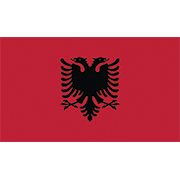Fiscal subject related
The Albanian Tax Administration has introduced new measures requiring international companies that provide digital services to Albanian users to register for VAT and charge a 20% tax. This move aims to formalize the digital economy and close the VAT gap as part of the government’s 2024–2027 strategy.
Global platforms like Google, Meta, Amazon, Netflix, and Spotify must now apply Albanian VAT on services sold to local consumers. Companies without a physical presence in Albania must appoint a local tax representative to handle VAT registration, invoicing, and payments.
Around 24 foreign companies across sectors like tourism, tech, and education have been identified for compliance.
Airbnb, Booking.com, and Netflix have already registered and begun VAT declarations. TripAdvisor and others have been notified, with legal action possible for non-compliance.
Digital services include:
· Streaming (Netflix, Spotify
· Cloud platforms (AWS, Google Cloud)
· Online advertising (Facebook, Google
· Software subscriptions and updates
· Online education and webinars
These services are taxed when sold to non-VAT-registered individuals or businesses in Albania.
The new rules affect both consumers and businesses, increasing transparency and aligning Albania with EU digital tax practices. Foreign companies must now operate under the same VAT obligations as local firms.
Other news from Albania
Value Added Distribution Highlights Structural Gaps in Albania’s Economy
 Albania
Author: Vukašin Santo
Albania
Author: Vukašin Santo
An analysis of Albania’s economy from 2010 to 2023 shows that although the wage share of value added has increased, it remains below EU levels, while profits are exceptionally high and taxes relatively low, reflecting a growth model still heavily reliant on cheap, labour-intensive production rather than productivity gains. The distribution of value added is the main indicator of who benefits most... Read more



New document was uploaded: EV-chargers from the Fiscalization Perspective in Albania
 Albania
Author: Vukašin Santo
Albania
Author: Vukašin Santo
The purpose of this document is to explain rules regarding the treatment of EV-chargers for electric vehicles in Albania in relation to fiscalization. We will explain whether they are subjects of fiscalization or not and whether there are some special rules and regulations or some special rules. Read more
Subscribe to get access to the latest news, documents, webinars and educations.
Already subscriber? Login


Fiscal Package Approved in Albania – New Cash Payment Limits
 Albania
Author: Nikolina Basić
Albania
Author: Nikolina Basić
Albania has approved new cash payment limits under its Fiscal Package 2026, which will enter into force by 1 January 2026 following publication in the Official Gazette. The reform lowers the B2B cash payment cap to ALL 100,000 and introduces a new ALL 500,000 ceiling for individuals and self-employed persons, with further guidance expected on enforcement and penalties. Albania has adopted new cash... Read more



Fiscalization in Albania: the storage of fiscal receipts
 Albania
Author: Nikolina Basić
Albania
Author: Nikolina Basić
In Albania, fiscal receipts may be kept in their original paper or electronic form, but businesses can store them electronically if authenticity, integrity, and long-term readability are ensured. Read more
Subscribe to get access to the latest news, documents, webinars and educations.
Already subscriber? Login


Tax Administration in Albania clarifies Invoice exemption for street vendors
 Albania
Author: Nikolina Basić
Albania
Author: Nikolina Basić
The Albanian Tax Administration has clarified that legally registered street vendors are exempt from issuing tax invoices and fulfilling fiscalization requirements. This exemption is outlined in national tax laws and applies to self-employed individuals trading in public spaces with proper registration and permits. The announcement aims to address public inquiries and promote understanding of simp... Read more



Tax Administration of Albania launches campaign to formalize agricultural trade
 Albania
Author: Nikolina Basić
Albania
Author: Nikolina Basić
Albania’s Tax Administration has launched a one-week campaign to formalize agricultural trade by promoting the use of fiscalized invoices for all wholesale and retail transactions. Following the awareness drive, a Task Force will carry out on-site inspections to enforce compliance with Law No. 87/2019. Albania’s Tax Administration has begun a one-week information campaign with the goal to fo... Read more


